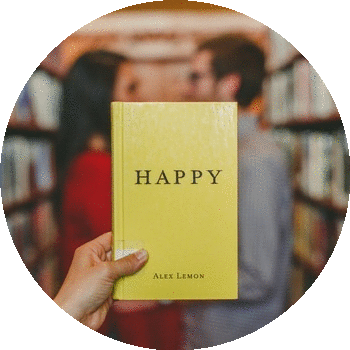Can we in post-conflict societies read through the power structure of conflict?
Written by Ajsa Hadzibegovic
Development Director
Civic Alliance
Septembar 2016, Montenegro
I am working on re-building post-conflict societies through focusing on interpersonal relationships, primarily in divided communities. In context of ex-Yugoslavia one can met many obstacles to re-build or mend the broken relationships. For instance some of them are:
 • Re-building relationships is seen as group process rather than individual, which makes it extremely complex.
• Re-building relationships is seen as group process rather than individual, which makes it extremely complex.
• Missing functional communication lines between “us” and “them” however you happened to be describing either of those two categories.
• Feeling pressure by own identity group when re-building relationships with “others”.
• Being exposed to stereotyping, hate speech and dehumanization of “others” through public and political sphere.
Additionally, there is also concept of Power - a fundamental concept in conflict theory – that can be obstacle, but can also be a needed leverage for moving things from status quo. And there I would like to concentrate on “power denial” – or deliberate and sometimes also unconscious attempts we use to deny that we are exercising power. Theory says that even if one would rather be seen as person who does not exert power, he/she is still influencing conflict. I find this to be one of crucial points for relationships rebuilding and also for rebuilding our societies as peaceful ones. As activists in this field and also as citizens and members of certain groups it is very important for all of us to become aware of the power we are exercising. Every time we (re)act in the direction of building peaceful society, every time we don’t do anything but wait for someone else to do something about it, even every time we post on FB we are exercising the power which can contribute or can disrupt the process of rebuilding our fragile post-conflict relationships. Therefore, the next step is higher alert and change in behavior which reflects that kind of understanding of power we exercise rather than denying it.
A relational theory of power is saying that “power is property of social relationship rather than a quality of the individual” and claiming that power person A has over person B is equal to the dependence that B has on A, and vice versa. And that this power is not fixed, but is shifting as each becomes dependent of resources the other person may offer. Relating this to post-conflict society it becomes evident that individual powers are also influenced by the power of group/party the individual belongs to as part of larger conflict. This is specially the case when re-building relationships is addressed in group work settings and individuals might feel somewhat limited / discouraged or, at the other end, supported / encouraged by the presence of others from own and from other’s group. So, I believe that the diagram by Wilmot and Hocker “Power A has over B = Dependency B has of A” needs to be widened and include the power of group as well (sometimes it can  be only perceived power of group, but it still plays role).
be only perceived power of group, but it still plays role).
Perception of power of individuals in conflict is almost always inaccurate and “each person in conflict firmly believes that the other person has more power” . So how can we be more aware of power we have and also of power others have over us in different relationships, particularly those burdened with past conflicts? For one we should be aware of this and think about power using concepts and assessment instruments to help engage objectivity instead of leaning on subjective feelings only. Second step is making sure there is effective and functional communication between “A” and “B”. And finally, decision making between those two should, for start, be happening at level of agreeing to continue attempts of re-building relationships and/or on finding an issue of joint interest (e.g. socio-economic reconstruction of neighborhood).
Through my engagements as youth worker, trainer and facilitator in brining divided communities closer and re-building broken relationships in post conflict societies, those steps have proven to be working, specially with young people. Thus concept of “constructive power balancing” is crucial in re-building personal and group relationships in wider post-conflict situations. Believing that with cooperation you can create more power than each of the conflicting parties could have created separately is key element for understanding this concept. There are some suggested actions leading to balancing power in conflict relationship:
• Focus on interdependence – when two people elevate their dependence of each other, each increases own sources of power. Higher power party often wants to forget this while lower power party needs to bring it in focus.
• Restraint – higher power parties refusing to use all power currencies and to engage in “natural” responses, can alter the very nature of destructive conflict cycle.
• Power of calm persistence – lower power parties in a conflict often gain more equal power by calm persisting in their requests without angry confrontation.
• Active engagement – higher power party often understand only one side of the conflict, therefore the lower power party need to speak up and present balanced picture of strengths and weaknesses, make clear of own believes, values and priorities, stay emotionally connected with significant others when things get intense and state differences allowing others to do the same.
• Empowerment – higher power individuals/groups are proposing enhancement of power of lower power ones. Also, when third parties have the power to intervene on the behalf of less powerful ones.
• Meta-communication – focuses the parties on the process of their communication with each other as they are jointly working to preserve relationship during conflict.  The “constructive power balancing” also means that all parties involved in the conflict should make deliberate effort to balance the powers so that they can move forward with transforming conflict into something constructive. However, in theories there are many elements suggesting active and “wise” acting from the lower power party, and even though power is shifting, in order for shift to occur, less seems to be expected from higher power party. In my experience this contributes to failures of re-building the relationships in post-conflict settings. Thus I believe that extend of Power that A has over B is proportional to the Power A has to contribute to constructive power balancing and re-shifting the powers and re-building the relationship. This seem to be contra-intuitive as there is no obvious benefit from giving-up of one’s power and even less so from giving it to perceived “enemy”. However, it seems so only if one is starting from and is based in position of “FEAR”. If the 3 steps described above are implemented fully and thus there is awareness and understanding of power relations, there is effective and functional communication and there is joint decision making on joint interest – then giving up some of own power and trusting more the “other” is happening and person is moving out from “fear” position.
The “constructive power balancing” also means that all parties involved in the conflict should make deliberate effort to balance the powers so that they can move forward with transforming conflict into something constructive. However, in theories there are many elements suggesting active and “wise” acting from the lower power party, and even though power is shifting, in order for shift to occur, less seems to be expected from higher power party. In my experience this contributes to failures of re-building the relationships in post-conflict settings. Thus I believe that extend of Power that A has over B is proportional to the Power A has to contribute to constructive power balancing and re-shifting the powers and re-building the relationship. This seem to be contra-intuitive as there is no obvious benefit from giving-up of one’s power and even less so from giving it to perceived “enemy”. However, it seems so only if one is starting from and is based in position of “FEAR”. If the 3 steps described above are implemented fully and thus there is awareness and understanding of power relations, there is effective and functional communication and there is joint decision making on joint interest – then giving up some of own power and trusting more the “other” is happening and person is moving out from “fear” position.
Finally, my learning from those initiatives and processes is that power can be used for mutual benefit if there is no (un)conscious abuse of power by any side and if both sides are empowered to call each other upon any such attempts. And yes, sometime it happens that lower power party or “victim” may abuse the victimhood to (un)consciously prolong the conflict or create new ones. Nineties in Yugoslavia were example where, among other things, unresolved issues and narratives of victims from WW2 were used to justify new conflicts and atrocities over former perpetrators. Another key element is that long-term gains need to be clear for all, agreed jointly and worth investing energy. The collaborative work on joint initiative is based on “power of partnership” - perspective that assumes that all want to accomplish jointly established goals and that everyone needs each other to achieve that. So, if we extrapolate from youth work and look into recovery of our post-conflict societies – it is essential to create conditions for “constructive power balancing” and for “power of partnership”. And first steps are: to be aware of and understand own role in creation of power relations; as well as to contribute to effective and functional communication and joint decision making regarding joint interests. Then the answer to the question in the title will finally be – yes – and not only to read through the power structure of conflict but to act upon it in a constructive manner!
Ajša Hadžibegović
